Trump Nominee Told Senate He Had Dropped Big Client, but Documents Say Otherwise
Although lobbyist David Bernhardt claimed he had stopped promoting a water district in California, emails and other evidence indicate he was still on the job.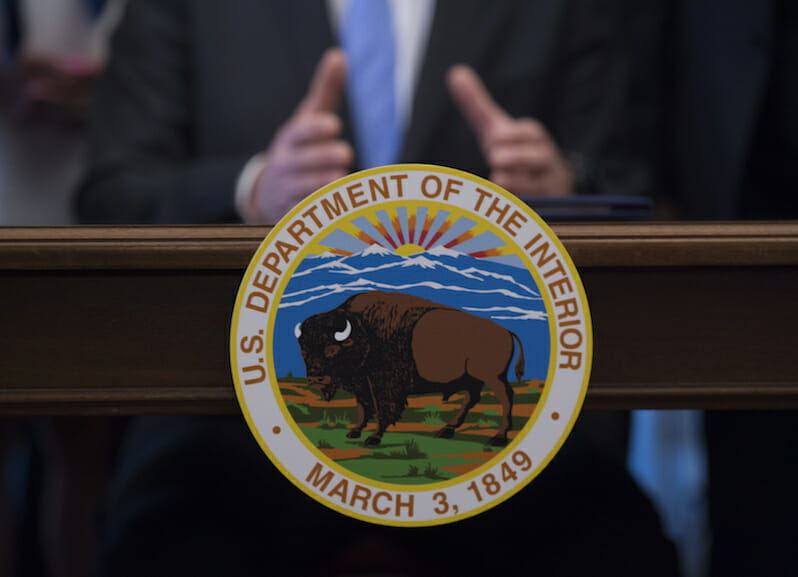 Molly Riley / AP
Molly Riley / AP
By Lance Williams and Matt Smith / Reveal
Molly Riley / AP
In recent years, Washington lobbyist David Bernhardt emerged as a go-to guy for energy producers, mining companies and agribusiness concerns eager to blunt the force of environmental regulation.
After President Donald Trump named Bernhardt to the No. 2 post at the U.S. Department of the Interior – where, if confirmed, he will have the power to ease regulations on the same interests he once represented – the lobbyist solemnly told the U.S. Senate that he had already called it quits with his biggest client, the politically powerful Westlands Water District in California’s Central Valley.
“I have not engaged in regulated lobbying activity on behalf of Westlands Water District after Nov. 18, 2016,” Bernhardt testified at his confirmation hearing in May.
But a collection of hundreds of emails and other public documents shows that Bernhardt and Westlands officials were in frequent political consultation in the months after he implied he had severed relations with the water district. The conversations came after Bernhardt left Trump’s transition team in mid-November but during the time the Trump administration’s environmental policies began to take shape.
On several occasions between Nov. 22 and April 19, Bernhardt had breakfast, lunch and dinner with Westlands officials, often in the company of congressional Republicans, the records show. The lobbyist frequently telephoned Westlands executives, and at one point offered to stay in touch via email and cellphone after he took his kids skiing over Christmas. He agreed to hop on conference calls with lawmakers and Westlands officials. In February 2017, he flew to the West Coast to consult with them.
His last Westlands email was dated April 19, nine days before Trump nominated him to be Interior Secretary Ryan Zinke’s number two.
Often, the emails show, the lobbyist gave political advice on issues of enduring interest for the Central Valley growers that Westlands represents: getting greater irrigation water allotments for growers from federal reservoirs in California, and gearing back on environmental programs that divert water into the Sacramento-San Joaquin River Delta to save the region’s storied salmon run.
In a Nov. 22, 2016 email, Westlands executive Johnny Amaral invited Bernhardt to join a conference call with Reps. David Valadao and Devin Nunes, two Central Valley Republicans who often carry bills favored by big growers.
“They want to talk about legislation for next year,” Amaral wrote.
“Yes, but we need legislation for this year,” Bernhardt replied.
The emails were provided to Reveal from The Center for Investigative Reporting by Patricia Schifferle, a consultant for the Sacramento-based Planning and Conservation League, an environmental group. She said she obtained the documents from Westlands via the state Public Records Act.
Schifferle contends that the emails raise serious questions about whether Bernhardt had been truthful in his sworn congressional testimony.
“Bernhardt has continued to provide lobbying services to Westlands despite his declared resignation and testimony to the Senate,” she said.
The water district declined to produce records of any payments to Bernhardt, so it was impossible to determine whether he had engaged in “regulated lobbying activity,” his lawyerly answer to the senators’ question about Westlands.
By federal law, lobbying firms are not required to register a client if they are paid less than $3,000 per quarter. Over the six years that Bernhardt represented Westlands, his lobbying firm, Brownstein Hyatt Farber Schreck, was paid $1.2 million, federal records show.
Bernhardt couldn’t be reached for comment. Amaral, the Westlands executive, told E&E News that Bernhardt “ceased all lobbying activities on our behalf,” but still gives legal advice.
Bernhardt, a lawyer, worked in the Interior Department during President George W. Bush’s administration. He left government to join the Brownstein firm, where he became chairman of the firm’s natural resources department.
In addition to Westlands, he has represented the offshore oil and gas industry.
He was the head of the Trump transition team formed to supervise the Interior Department in September, but Trump removed Bernhardt and most other lobbyists from the transition teams soon after the election. Since then, he has continued to work at his lobbying firm while he awaits confirmation, records show.
His firm is also part owner of Cadiz Inc., which has proposed a controversial plan to pump water from underneath the Mojave Desert and transport it to Los Angeles. The project will require Interior Department permitting, and his firm’s stake grows as it moves through the regulatory process.
At his confirmation hearings, Republicans praised Bernhardt for his government experience and shrugged off complaints that the former lobbyist was a “walking conflict of interest,” as he was called in a joint letter signed by 150 environmental groups.
Sen. Maria Cantwell, a Democrat from Washington state, pressed Bernhardt about his lobbying for Westlands. She asked whether he would recuse himself from matters affecting the water district.
“I believe that public trust is a public responsibility and that maintaining an ethical culture is important,” he replied. He said he would consult with the department’s ethics office “regarding any particular matters involving specific parties of former clients or entities represented by my former firm.”
The full Senate is expected to take up his nomination next week.
This story was originally published by Reveal from The Center for Investigative Reporting, a nonprofit news organization based in the San Francisco Bay Area. Learn more at revealnews.org and subscribe to the Reveal podcast, produced with PRX, at revealnews.org/podcast.
Your support is crucial...As we navigate an uncertain 2025, with a new administration questioning press freedoms, the risks are clear: our ability to report freely is under threat.
Your tax-deductible donation enables us to dig deeper, delivering fearless investigative reporting and analysis that exposes the reality beneath the headlines — without compromise.
Now is the time to take action. Stand with our courageous journalists. Donate today to protect a free press, uphold democracy and uncover the stories that need to be told.
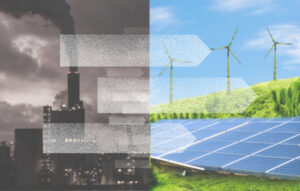
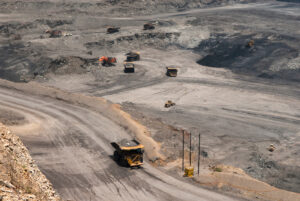
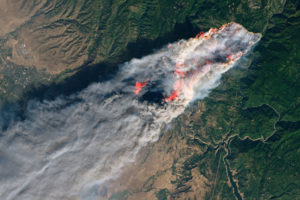


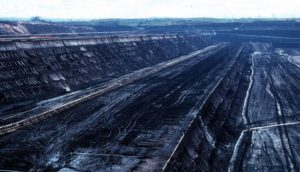
You need to be a supporter to comment.
There are currently no responses to this article.
Be the first to respond.